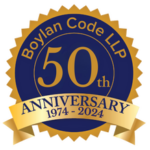 In a famous skit from The Tonight Show Starring Jimmy Fallon, Jimmy Fallon and Justin Timberlake engage in a “Twitter conversation”. In this hilarious two-minute skit, the dynamic duo mainly use hashtags to communicate. Hashtags are a type of meta-data tag used on social networking sites to facilitate a search for a specified topic of interest, or a “hip” way to communicate an expression or emotion. When The Tonight Show skit was aired in 2013, hashtags were just becoming popular in the online universe. Now, hashtags are essential forms of organization and descriptors in almost all major social media posts.
In a famous skit from The Tonight Show Starring Jimmy Fallon, Jimmy Fallon and Justin Timberlake engage in a “Twitter conversation”. In this hilarious two-minute skit, the dynamic duo mainly use hashtags to communicate. Hashtags are a type of meta-data tag used on social networking sites to facilitate a search for a specified topic of interest, or a “hip” way to communicate an expression or emotion. When The Tonight Show skit was aired in 2013, hashtags were just becoming popular in the online universe. Now, hashtags are essential forms of organization and descriptors in almost all major social media posts.
Accordingly, companies and advertisers across the globe have recognized the influence of these hashtags. Hashtags are rapidly becoming the powerful basis of advertisement campaigns or social messages. Besides being a trendy advertisement tool, by following a hashtag associated with a campaign, such as #airjordan or #addidassuperstar, companies are able to monitor real-time data on how often these tags are used and in what way they are spoken of.
Because of their importance, controversy has arisen as to the usage of hashtags and their rights and liabilities in trademark law. In general, the U.S. Patent and Trademark Office accepts applications for hashtags as trademarks, but notes that simply adding the symbol # does not make a mark or prospective mark any more distinctive. TMEP 1202.18. Rather, a hashtag is only registerable if the underlying words function as a trademark. Id. Trademark law requires a mark to be specific enough to indicate the source of particular good, and to distinguish it among similar alternative goods. Further, descriptive or generic hashtags, such as Justin Timberlake’s hashtag #homemade when he describes the cookies he gives to Jimmy Fallon, are not offered trademark protection.
The usage of these trademarked hashtags sometimes boils over into litigation for claims of trademark infringement under Section 32(1) of the Lanham Act. Further, this type of claim is usually accompanied by false advertising claims and unfair competition claims that all rest on demonstrating consumer confusion. For these claims, a consumer does not need to believe that the owner of a mark actually produced the item and placed it on the market, only that the mark’s owner sponsored or otherwise approved the use of the trademark. Dallas Cowboys Cheerleaders, Inc. v. Pussycat Cinema, Ltd., 604 F.2d 200, 204 (2d Cir. 1979).
In a recent decision that was signed on September 14, 2018, the Southern District of New York faced a motion to dismiss for failure to state a claim based on a complaint that alleged violations of the Lanham Act for defendants’ use of a trademark and brand, including with their usage of a misleading hashtag. Chanel, Inc. v. WGACA, LLC, 2018 WL 4440507, (S.D.N.Y. 2018). In that case, Chanel, Inc. (which I now understand is a premier seller of luxury consumer products such as bags, shoes, jewelry, etc. – thank you case law research), sued a company called WGACA, LLC that sells secondhand Chanel-branded products on its website. Id.
Among other claims, Chanel took issue with WGACA’s social media posts where WGACA would post a photo of a Chanel-branded product with the hashtag #WGACACHANEL. Id. Chanel alleged that the use of that hashtag infringes Chanel’s trademark on their name because WGACA combined its name with Chanel to create the impression that the companies were affiliated or that they are an authorized Chanel retailer. Id. The Southern District noted that courts have upheld similar complaints and held that Chanel had stated a claim for violations of the Lanham Act and for New York State law of deceptive practices and false advertising, accepting all factual allegations as true. Id. The Court reasoned that WGACA’s use of the hashtag and the multiple uses of Chanel’s name and trademark in the hashtags may create a likelihood of confusion about Chanel’s sponsorship or affiliation. Id. As a welcome change to normal case law reading, the Court even included a representative post on Instagram of the hashtags that are the alleged violations. Id. It is important to note that it seems from the decision that Chanel owned a trademark in its name, rather than a hashtag version of its name.
Unfortunately, Chanel’s defense of its trademark is likely a never-ending battle. With the amount of users on these social media forums, companies from all over the globe can purport to sell an authentic, high-end product using something as simple as a hashtag to cause confusion. For instance, simply adding a #justdoit to the end of a solicitation that offers to sell premier work-out gear can cause confusion as to whether the seller is an authentic or sponsored Nike affiliate. As case law and trademark law attempts to catch up with this type of false advertisement and trademark infringement, I expect to see more companies like Chanel litigating to defend their goodwill.
If any of my consumer readers are now concerned about your usage of a brand hashtag in your last selfie, fear not. A common defense to trademark infringement is that the use is considered a fair use. To come within this fair use defense, a person must make use of the other party’s trademark (i) other than as a mark, (ii) in a descriptive sense, and (iii) in good faith. 15 U.S.C. §1115(b)(4). Further, and perhaps obviously, Adidas will not be concerned about your posting and hashtag usage while you show off their brand-new product. This type of non-competitive use is not what would trigger enforcement by a trademark owner – this is what these hashtag campaigns intend to do and why they are so successful. Again, and as in the case described above, the issues arise when hashtags are utilized in a way that causes consumer confusion, normally between two businesses.
The first line of defense for many of these hashtag trademark controversies is the policies adopted by large social media companies such as Twitter, Facebook, and Instagram. For example, Twitter’s trademark policy states that it is a violation to use a business’s protected materials in a misleading way or for financial gain. Facebook has even adopted a policy whereby they may immediately remove infringing content without first contacting the poster. These protective policies adopted by the large social media companies can be easily contrasted with their approach to claims of defamatory comments, which can be impossible to get off forum websites.
I expect that trademark regulations and case law will evolve to respond to growing online infringement issues. Until that time, I recommend that businesses should avoid using trademarks of other businesses and utilize the value of monitoring their own marks on social media websites. The goodwill built up by a trademarked brand and campaign can be a powerful tool of advertising, but it can also be terribly misused by companies seeking to profit off consumer confusion.
Robert Marks is an Associate in the Litigation Department at Boylan Code LLP focusing his practice on Labor and Employment issues, Municipalities, Commercial Litigation, and Landlord-Tenant Litigation.
This article was published in The Daily Record.


